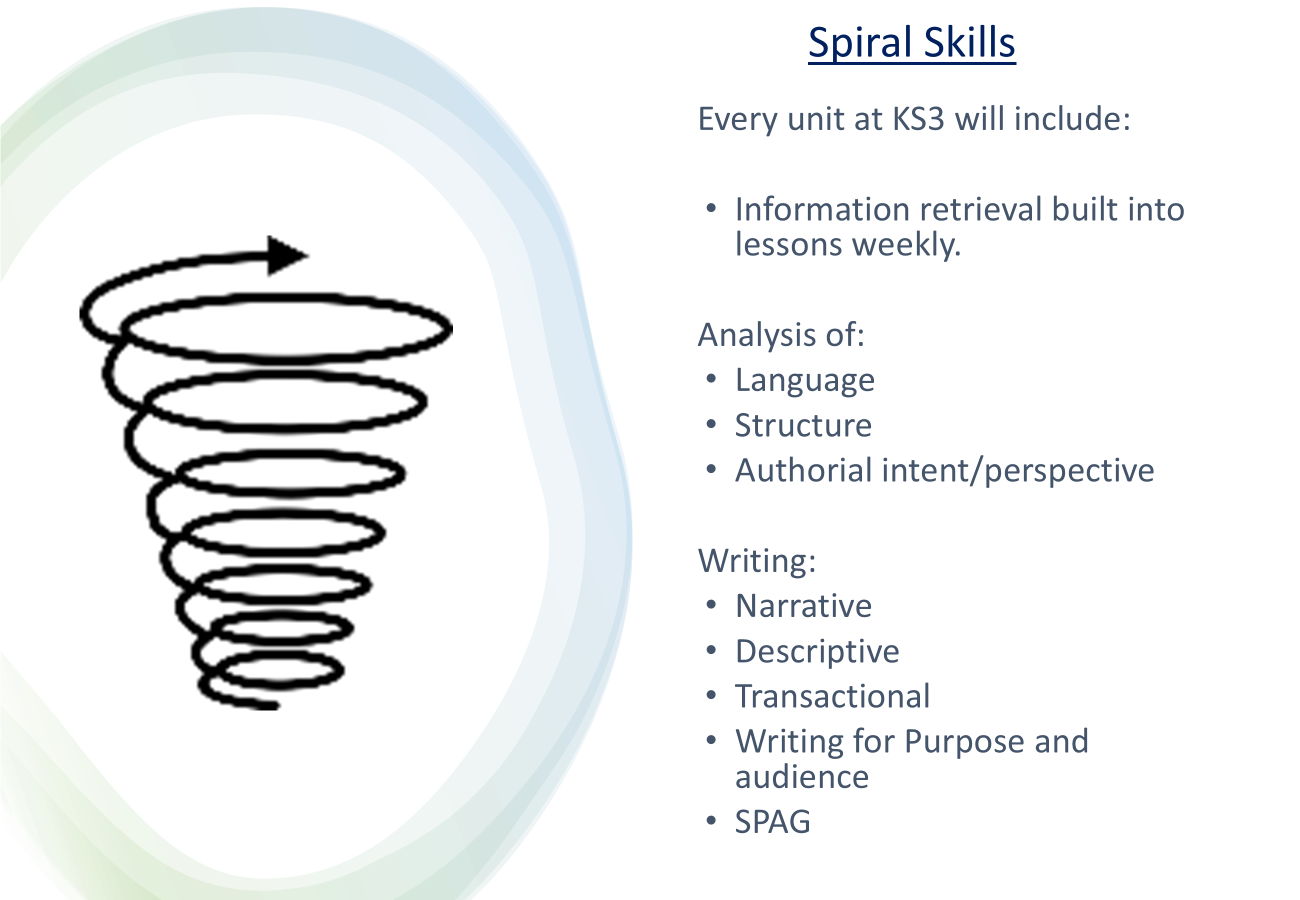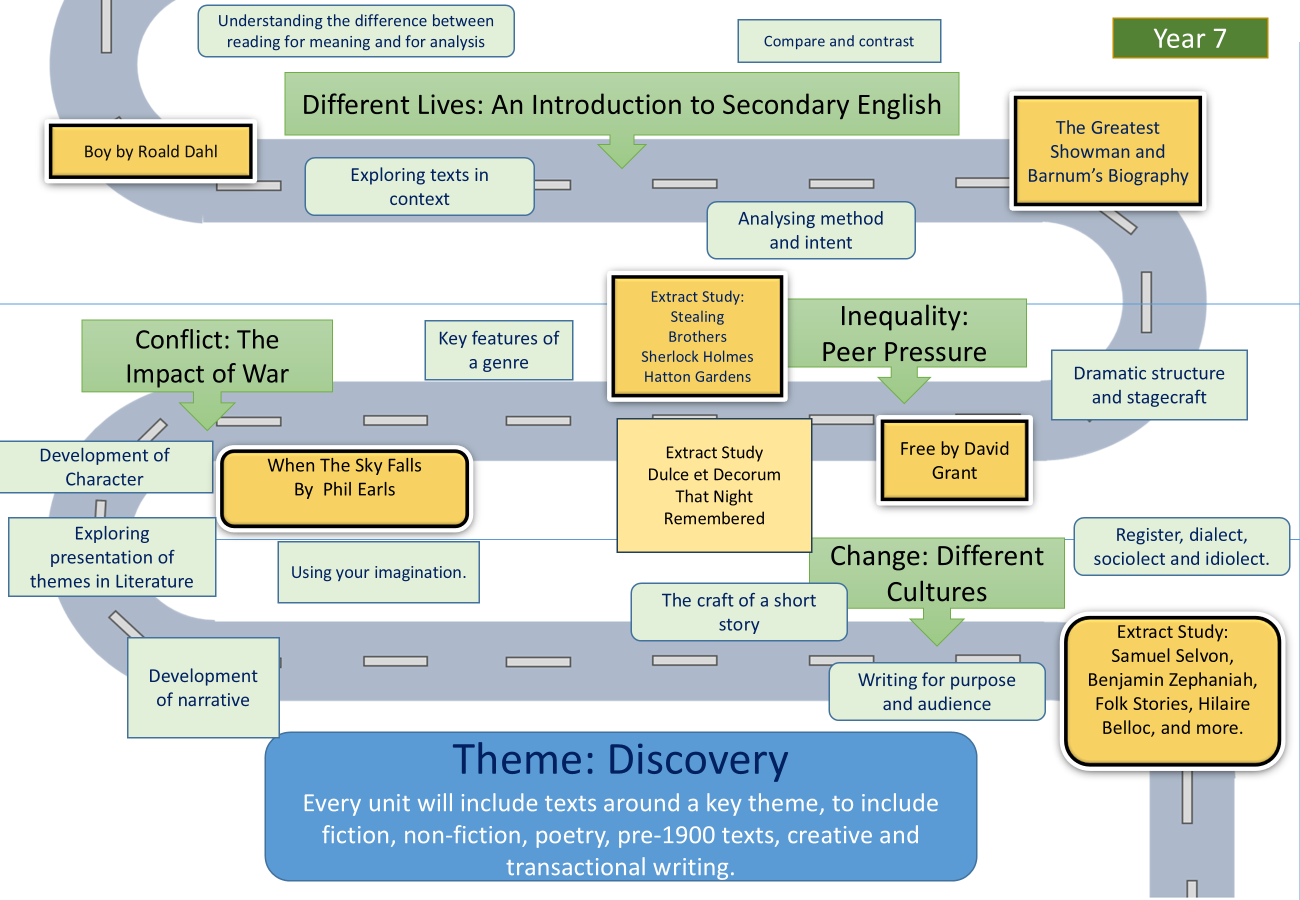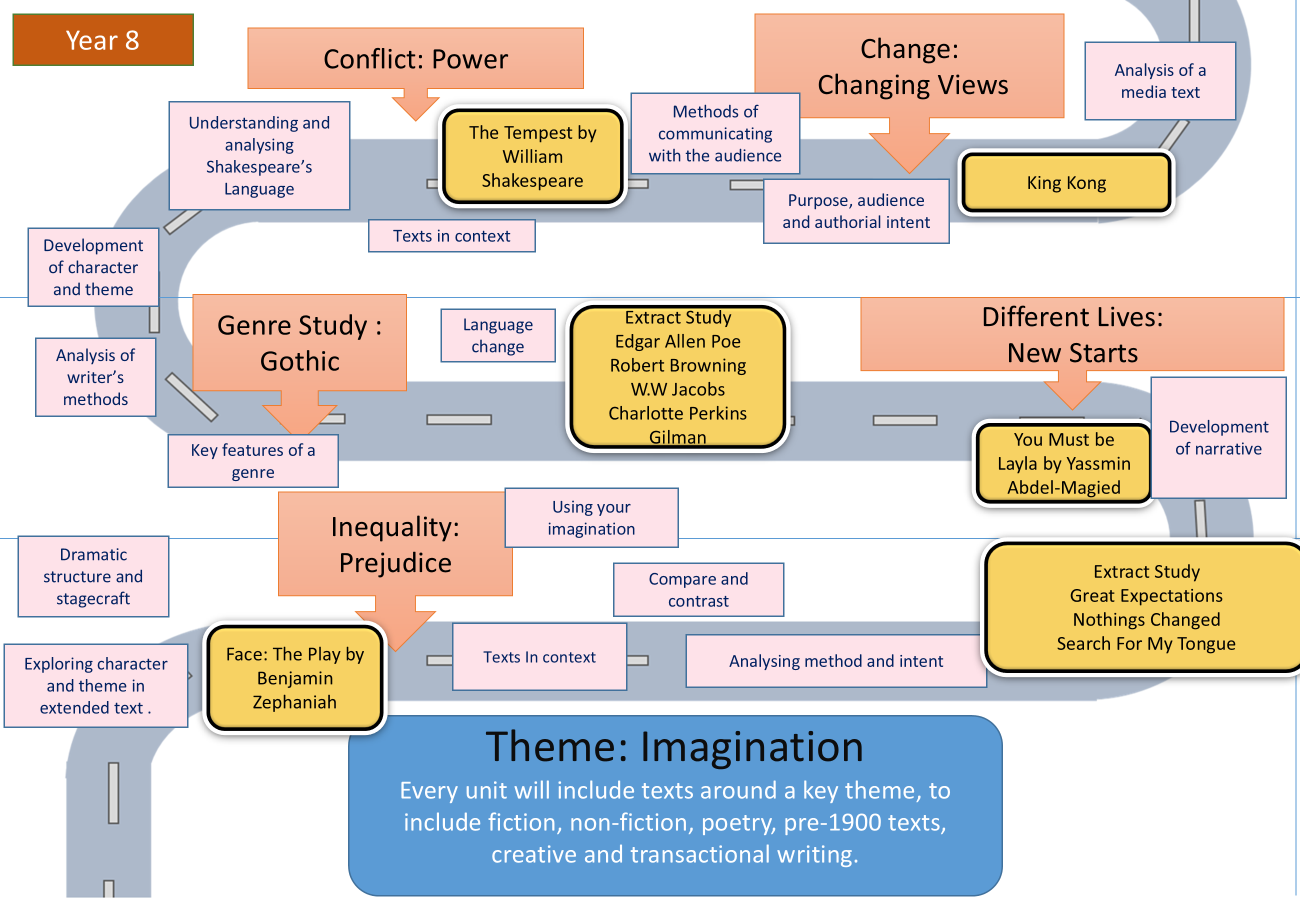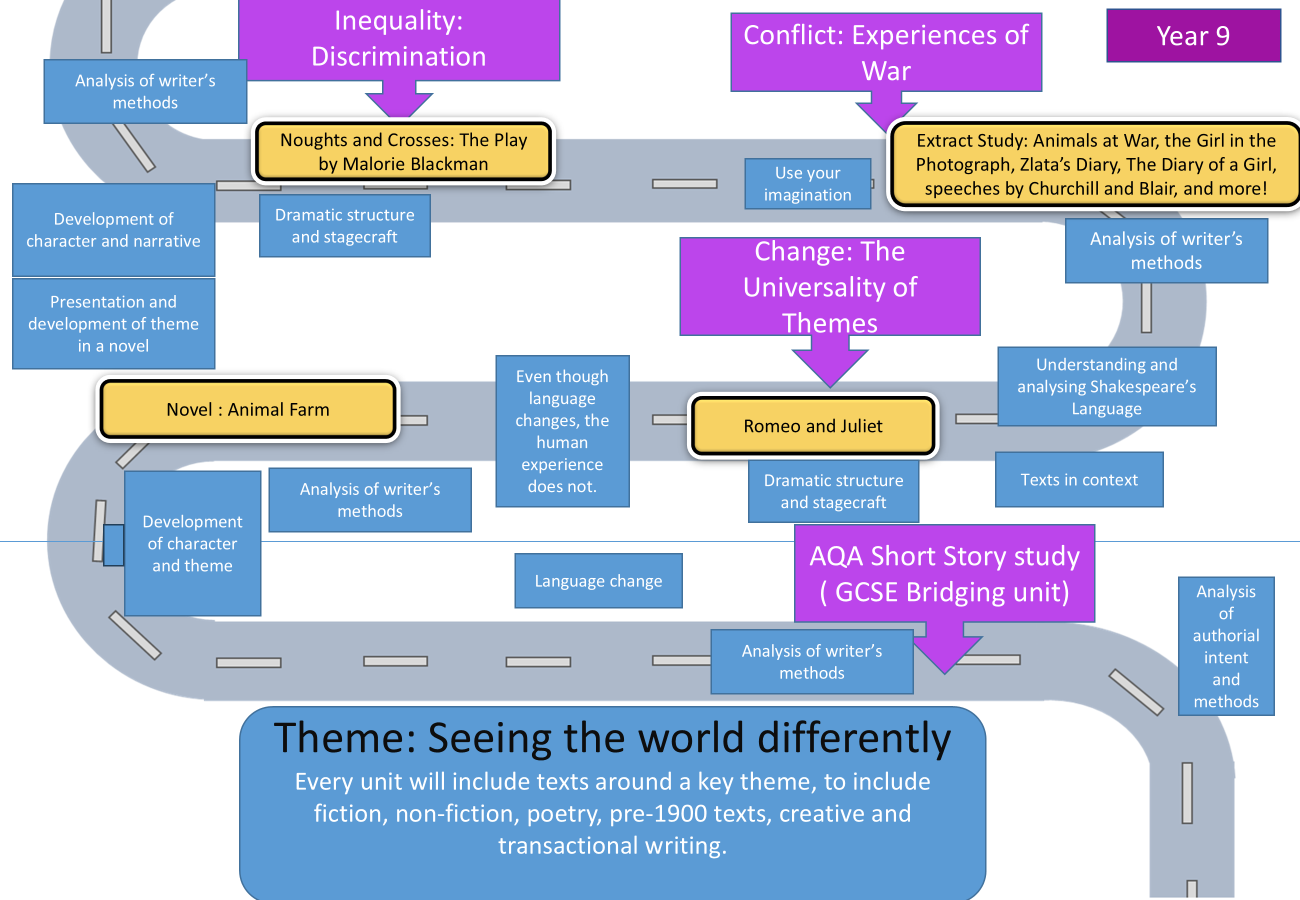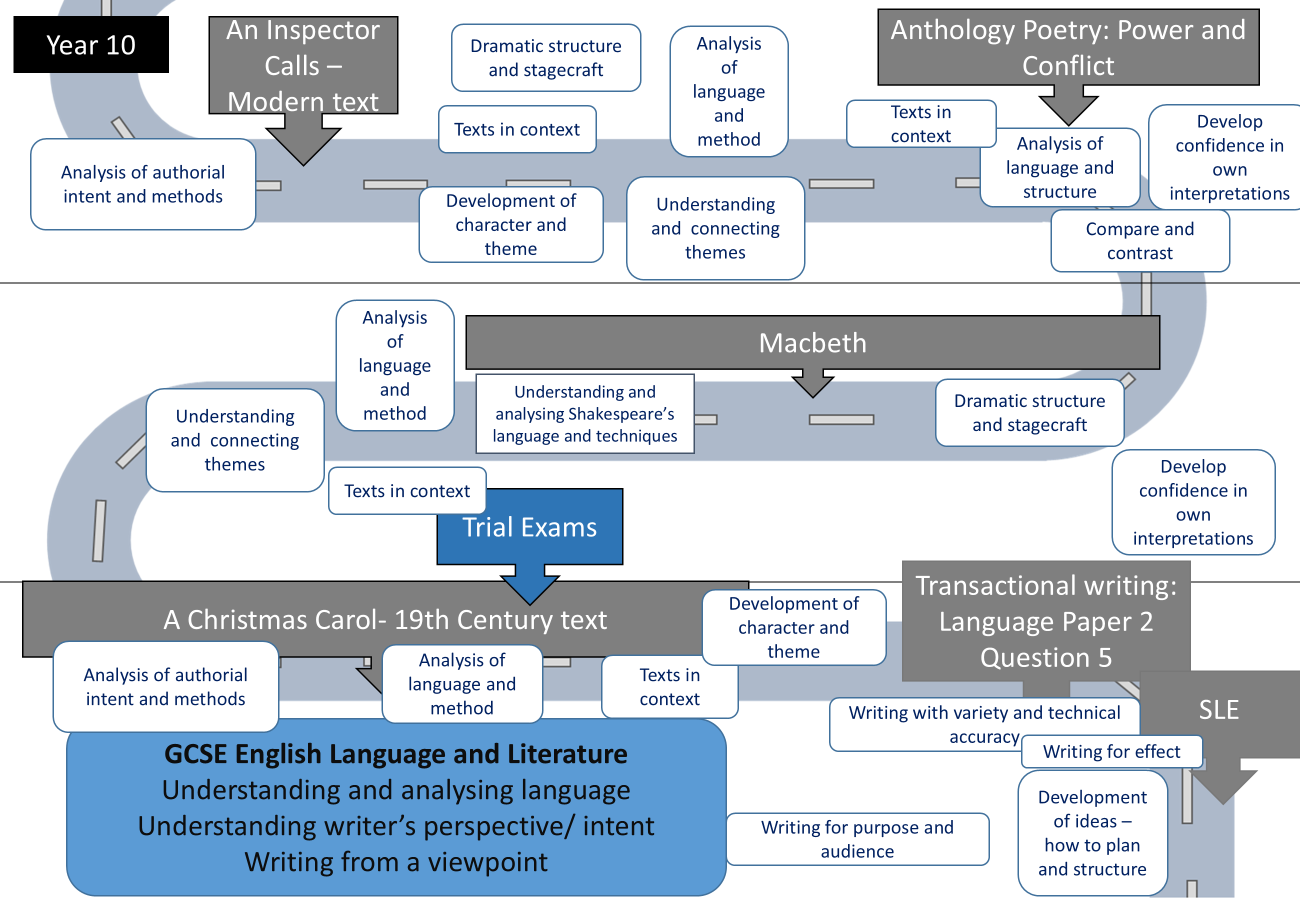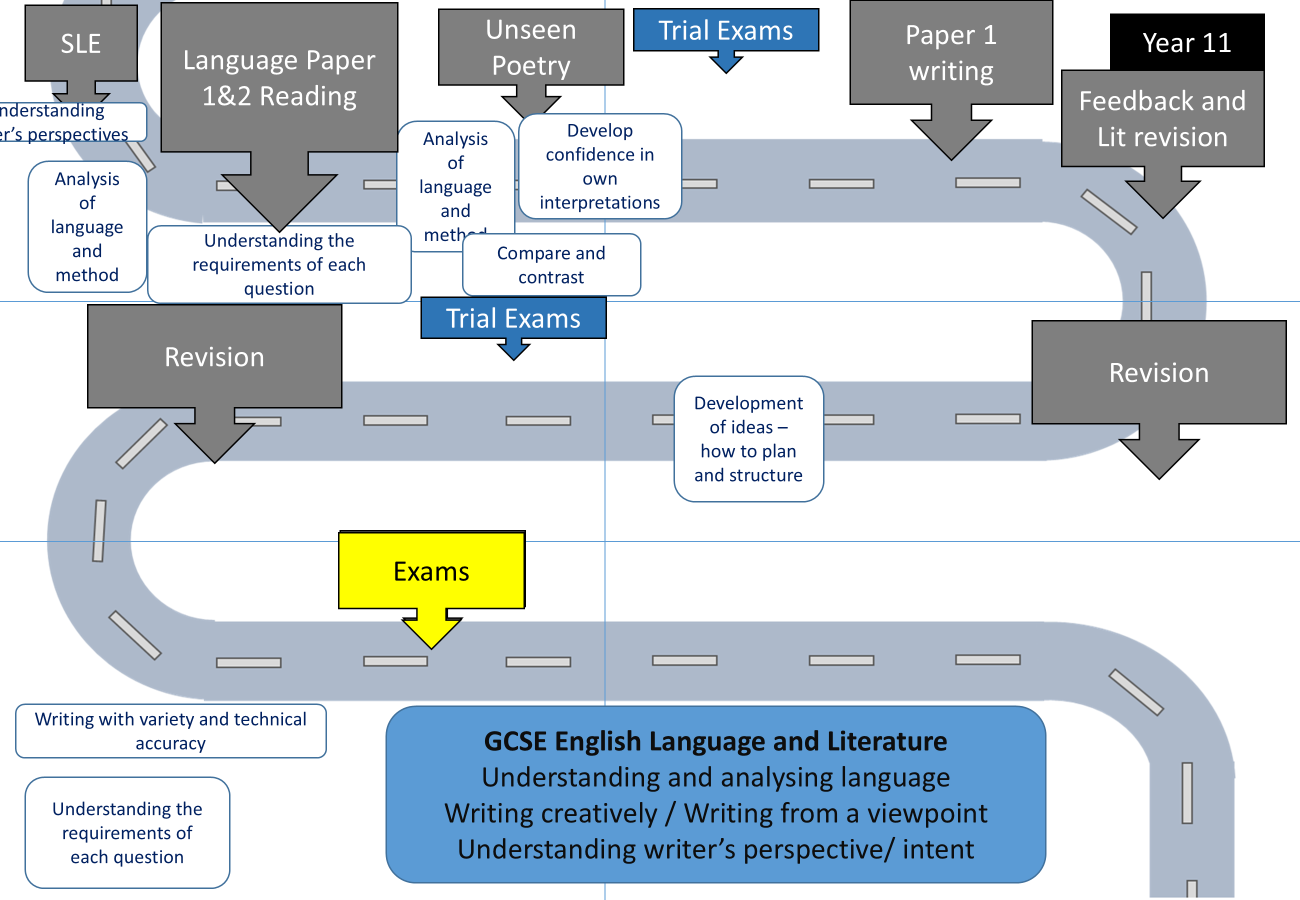English
Curriculum Intent
In English at Haven High Academy, students will:
- Study the full range of English and Literacy skills which they will need in order to be successful at their terminal GCSE examinations, well prepared for further study at KS5 if they so choose, and equipped with the skills necessary to be successful in their future life, whatever form that may take.
- Develop understanding of key issues in the world through accessing high quality literature which both challenges and engages them.
Implementation:
We believe that this is best achieved through giving students the opportunity to learn, over-learn, consolidate, develop and extend their skills, knowledge and understanding through a skills-based learning programme.
Alongside this, we believe that English plays an important role in enabling students to learn about the world in both the past and present spheres. This knowledge should go hand in hand with developing the necessary critical thinking skills to ensure that they, on a personal level, can make valid and meaningful contributions to any community which they may one day be a part of.
In order to do this, we will plan units of study which allow students to approach key ideas through a range of texts, both fiction and non-fiction. In line with our intent to learn and re-learn key skills, we will do this through ensuring that students have the opportunity every term to study:
- poetry,
- prose (novel and short story),
- drama,
- non-fiction and media
from a range of time periods.
The curriculum has been built around a spiral of skills to ensure that the students are on a learning journey through the year groups. The interwoven skills are mapped to show development over time. The mix of texts and skills allows students to understand the transferability of skills and become more confident and independent learners.
Students will also write in varied forms for different audiences and purposes, with focus on both transactional and imaginative writing forms.
Students will be encouraged to develop their speaking and listening skills in a range of different situations, both formal and less so.
Additionally, over the course of each year we will include the study of texts from a range of different cultures at KS3 to ensure that they gain a taste of literature from around the globe prior to their KS4 studies, where the syllabus narrows to solely British writers. Above all, we will ensure that our KS3 curriculum gives students the breadth of cannon to ensure that they leave KS3 with a well-rounded literary exposure.
Students in our school read regularly for pleasure. This is supported through regular reading lessons throughout KS3 and twice-yearly reading assessments at KS3 using NGRT to ensure that their progress is tracked and we are therefore able to intervene as necessary with any student who is falling behind or failing to make adequate progress. In KS3 library lessons, students have the opportunity to read independently and to develop reading skills through the Sparx reader programme . This guides and tracks the students’ reading over time.
Year 9 will function as a transition year, where in students will still follow a KS3 programme of study but will move onto being assessed according to the GCSE exam criteria, and the texts which form the bulk of their study will be those often considered to be suitable texts for study at GCSE-level, in order to provide both stretch and challenge as they progress towards a KS4 curriculum which is dictated by the GCSE syllabus.
Less able students of English will largely access the same curriculum content as those more able, with the understanding that life outside of education will require the ability to utilise effective strategies to access texts and written tasks which challenge, and that students must therefore be given the opportunity to utilise these strategies in a safe and supportive environment. However, our approach to these texts will be differentiated appropriately, and the breadth of content may be less than for those more able students. This will allow less able students greater opportunity to focus on learning, re-learning and over-learning the core skills.
